Lost and found
In the city where I once lived, the walls were alive—not with vines or rust, but with hands. Painted hands, like graffiti, stretched across brick and concrete, a silent chorus frozen in various gestures. One morning, driven by an impulse I didn’t understand, I decided to follow these hands, letting them guide me through a maze of streets that I thought I knew.

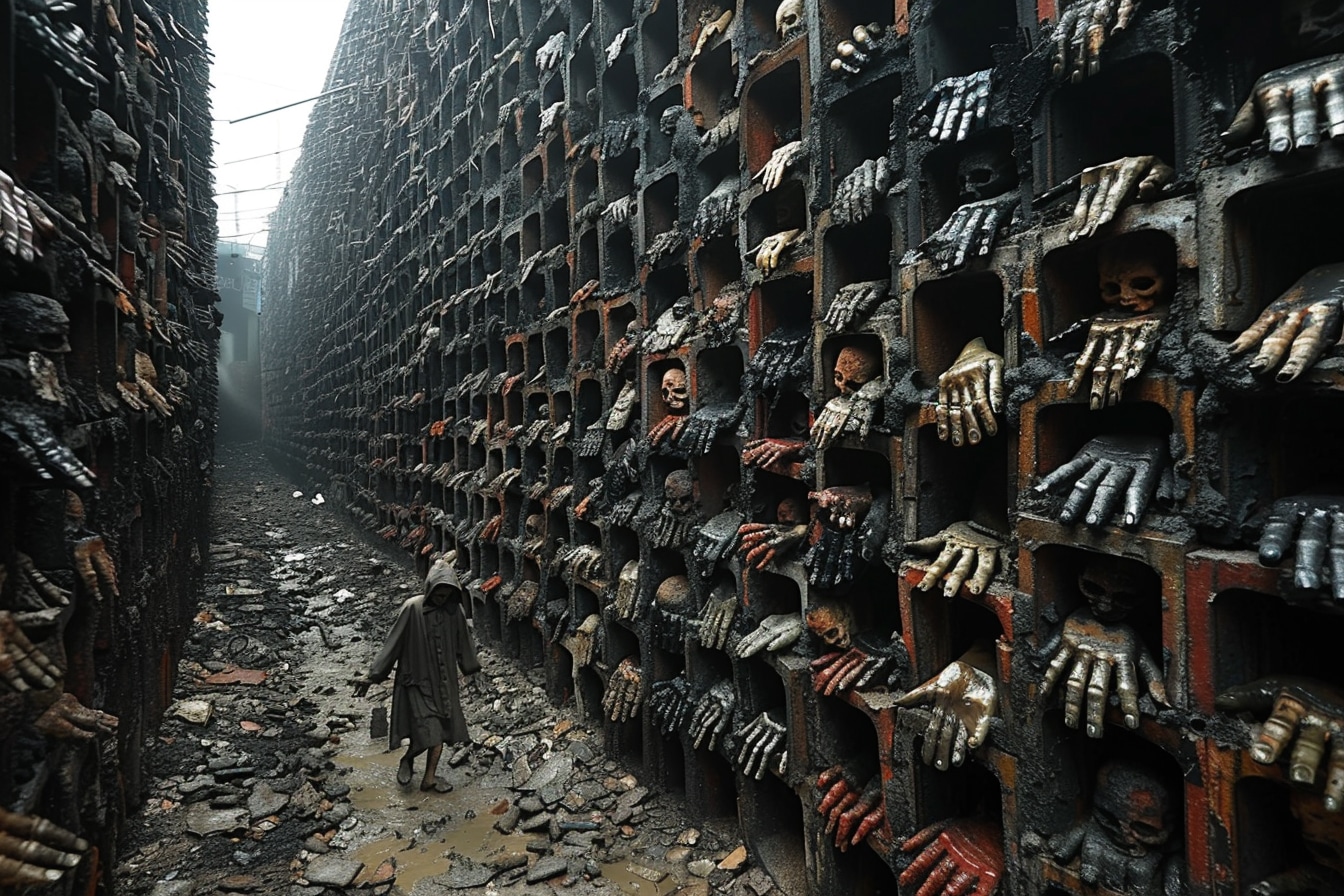
The hands led me away from familiar paths into areas I had never dared explore. The journey stretched out, time blurring as I walked. I wasn’t sure how long I had been moving when I first noticed the city changing around me.
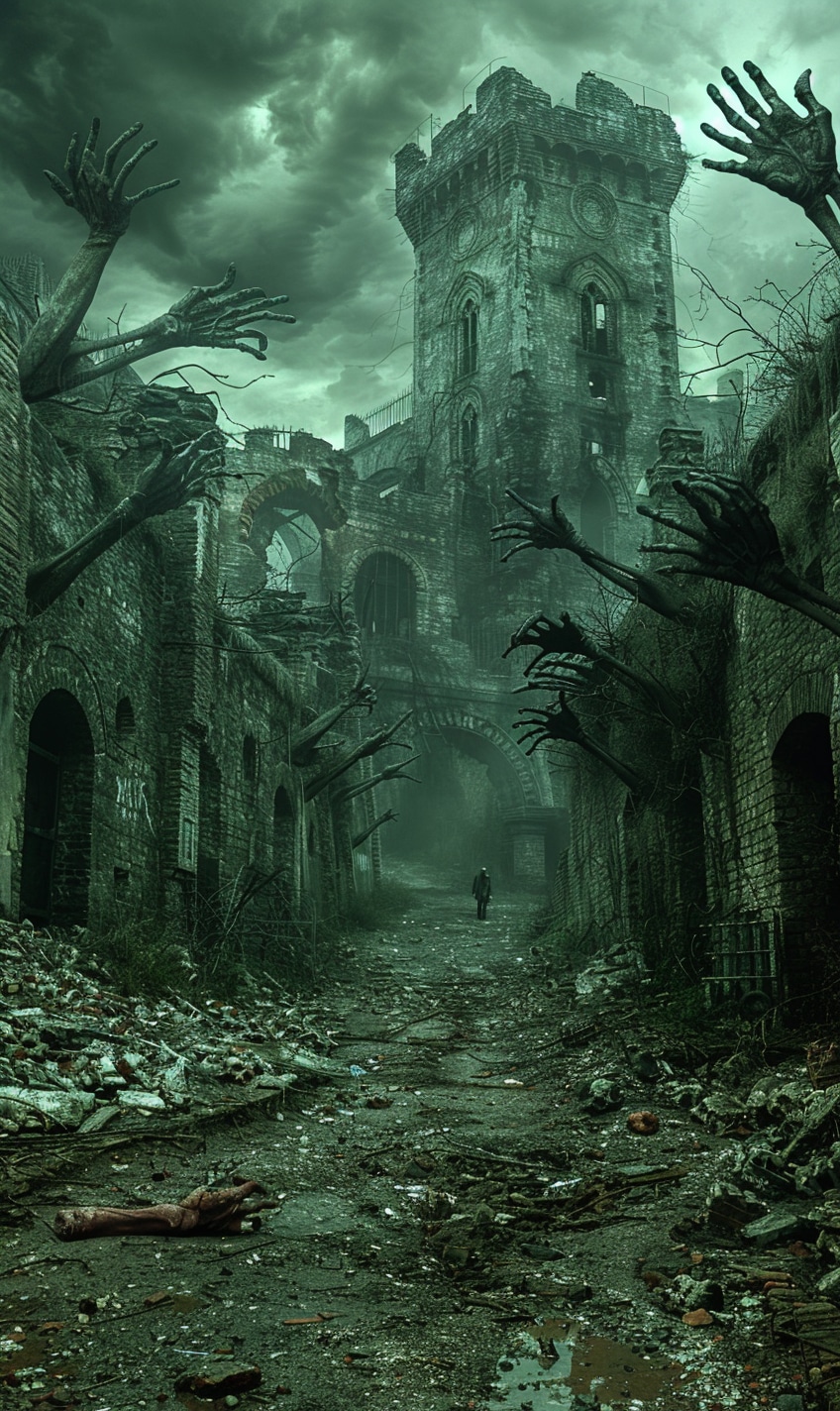

The buildings grew taller, their walls bending in ways that defied reason, their surfaces rough like the bark of ancient trees. Real hands, massive and sculpted from stone, protruded from these walls. They loomed over me, their presence overwhelming yet strangely comforting.
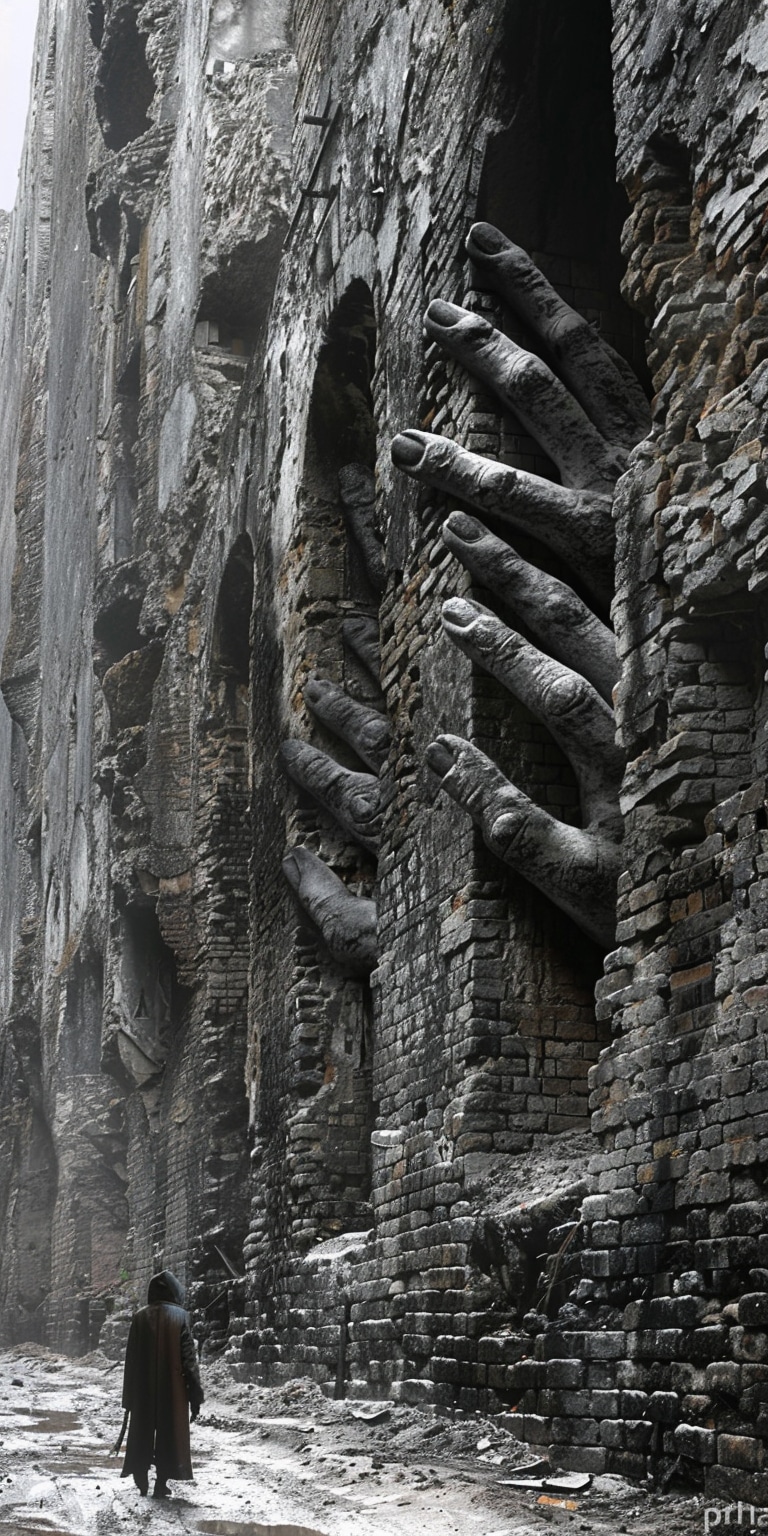
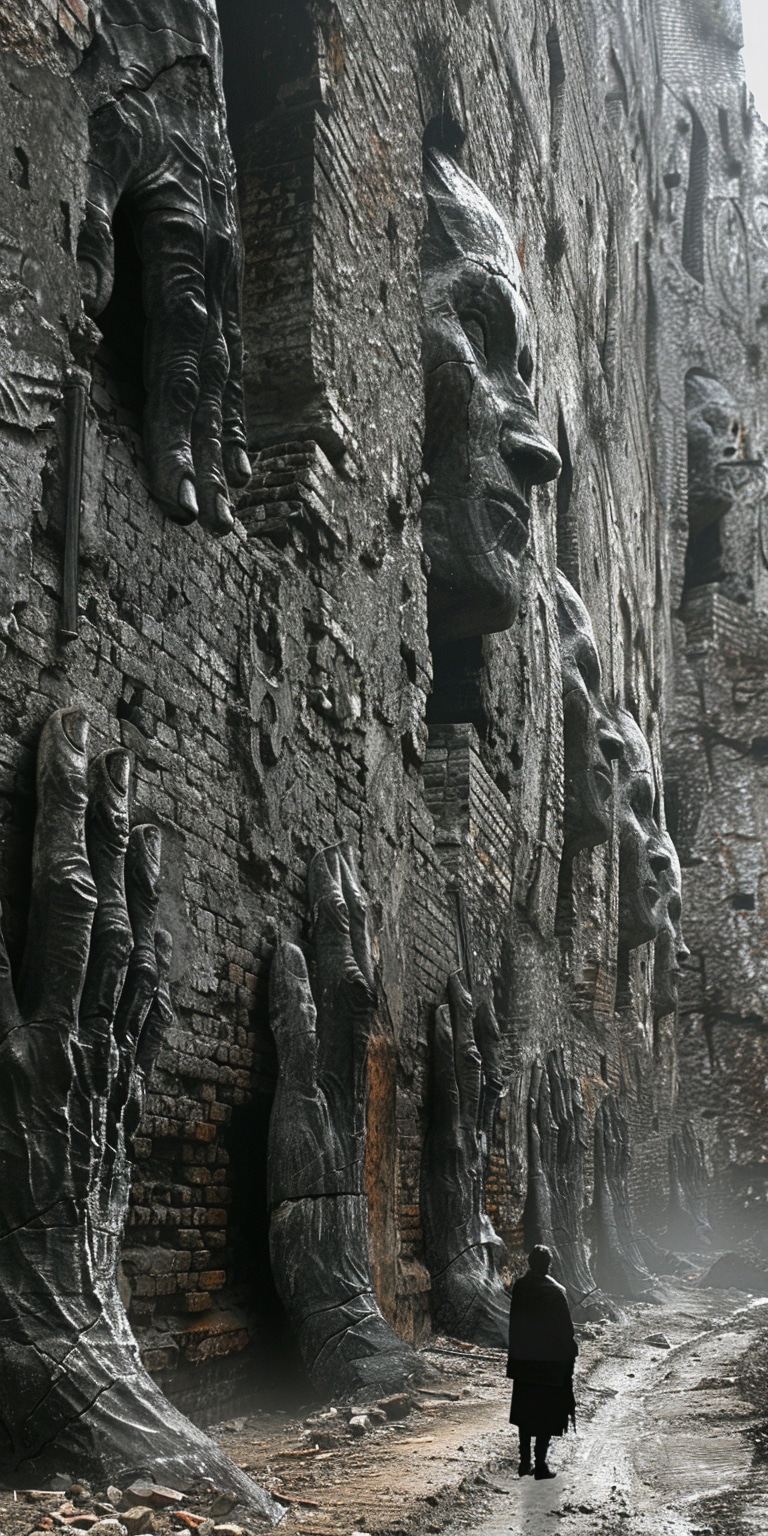
This new city was different. Its vastness made me feel insignificant, a lone figure wandering through a landscape of towering stone and silent, pleading hands. These hands seemed desperate, reaching for something just out of reach, their gestures bold yet tragic.
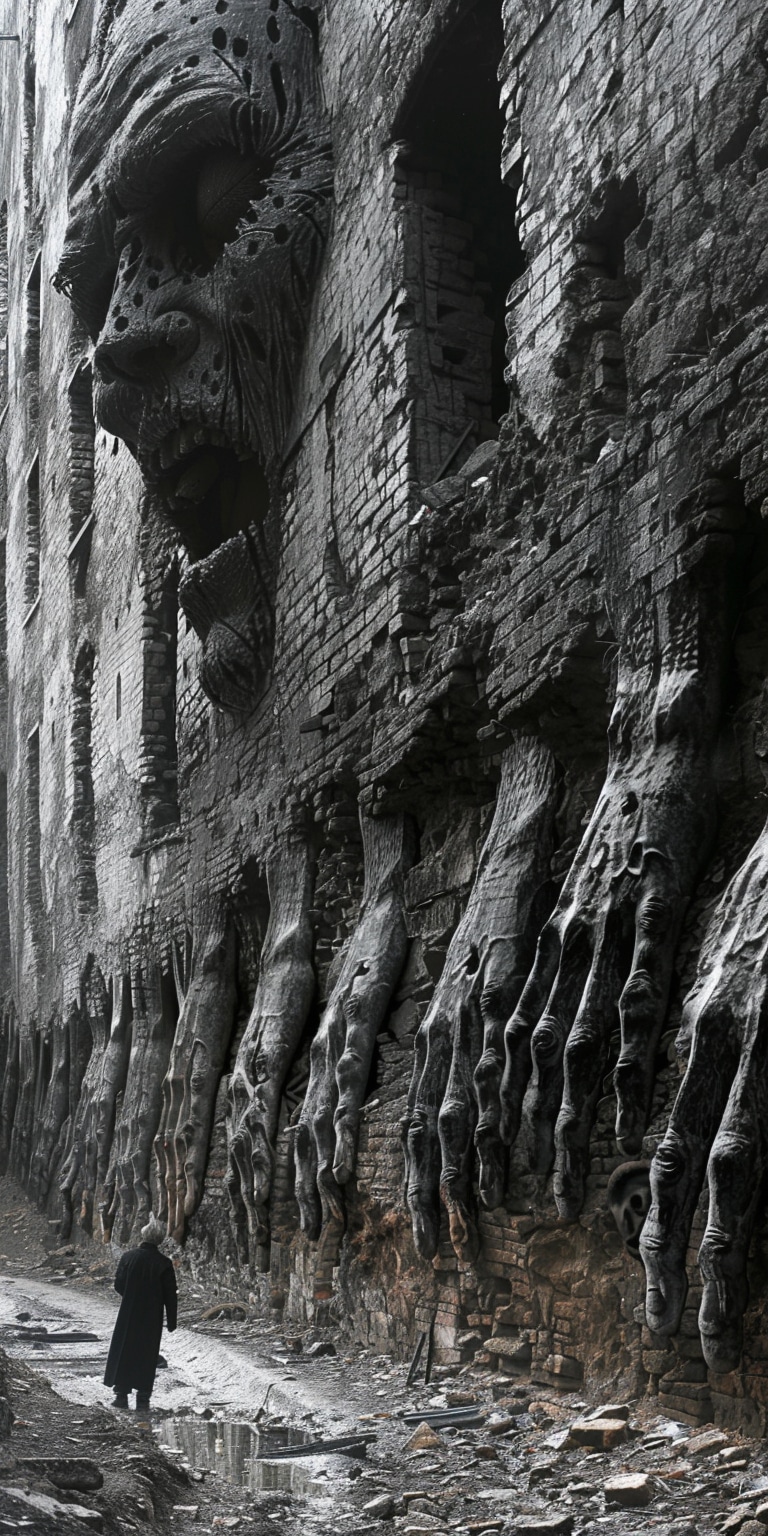

As I walked, the streets became rivers of stone hands, each one telling a story of longing and confinement. They reached up as if to break free from the stone, each finger stretched toward a sky I could no longer see. It was here, among these grasping hands, that I felt a shift within myself. The city’s pulse became my pulse; its breath became my breath.

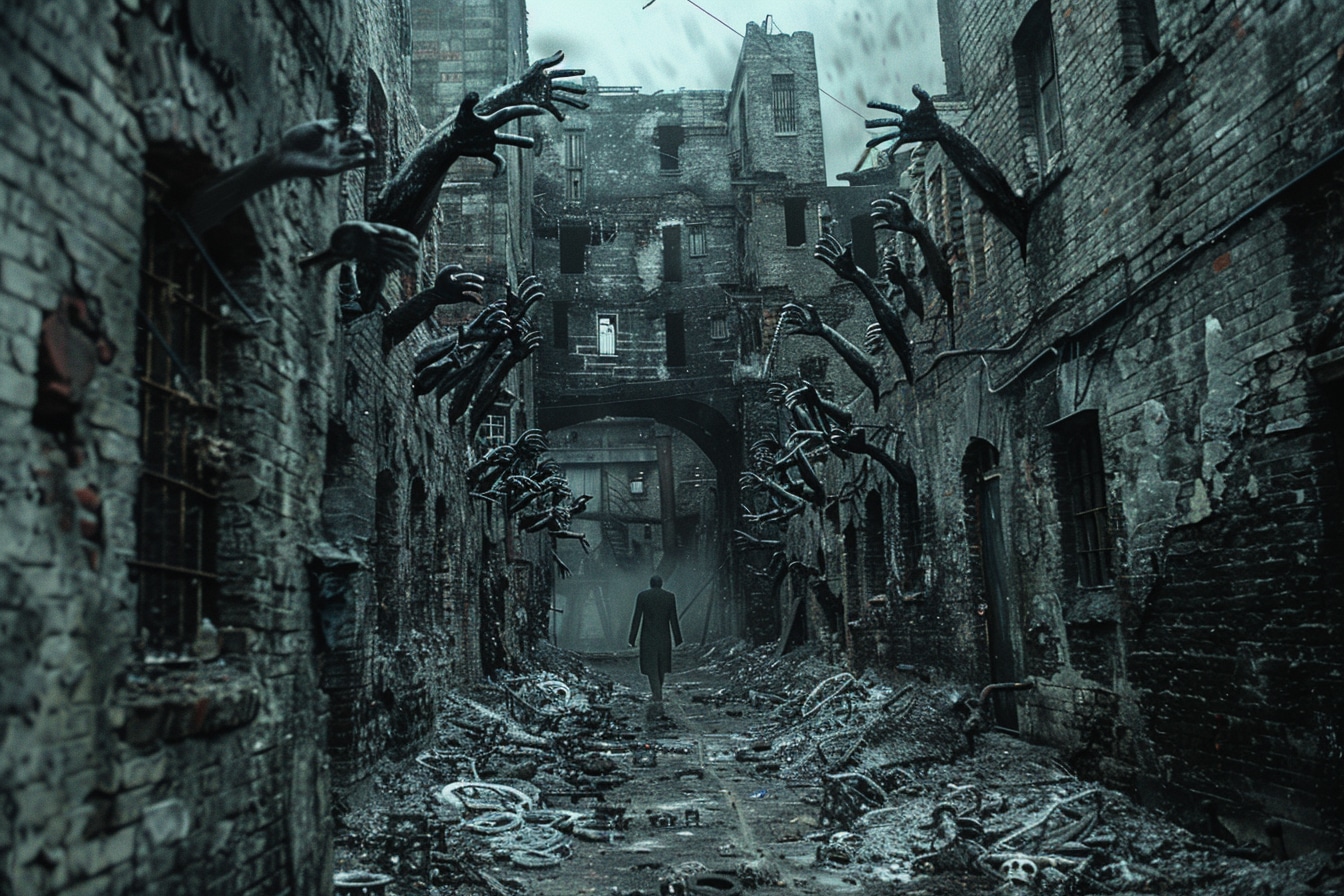
As I walked, the streets became rivers of stone hands, each one telling a story of longing and confinement. They reached up as if to break free from the stone, each finger stretched toward a sky I could no longer see. It was here, among these grasping hands, that I felt a shift within myself. The city’s pulse became my pulse; its breath became my breath.
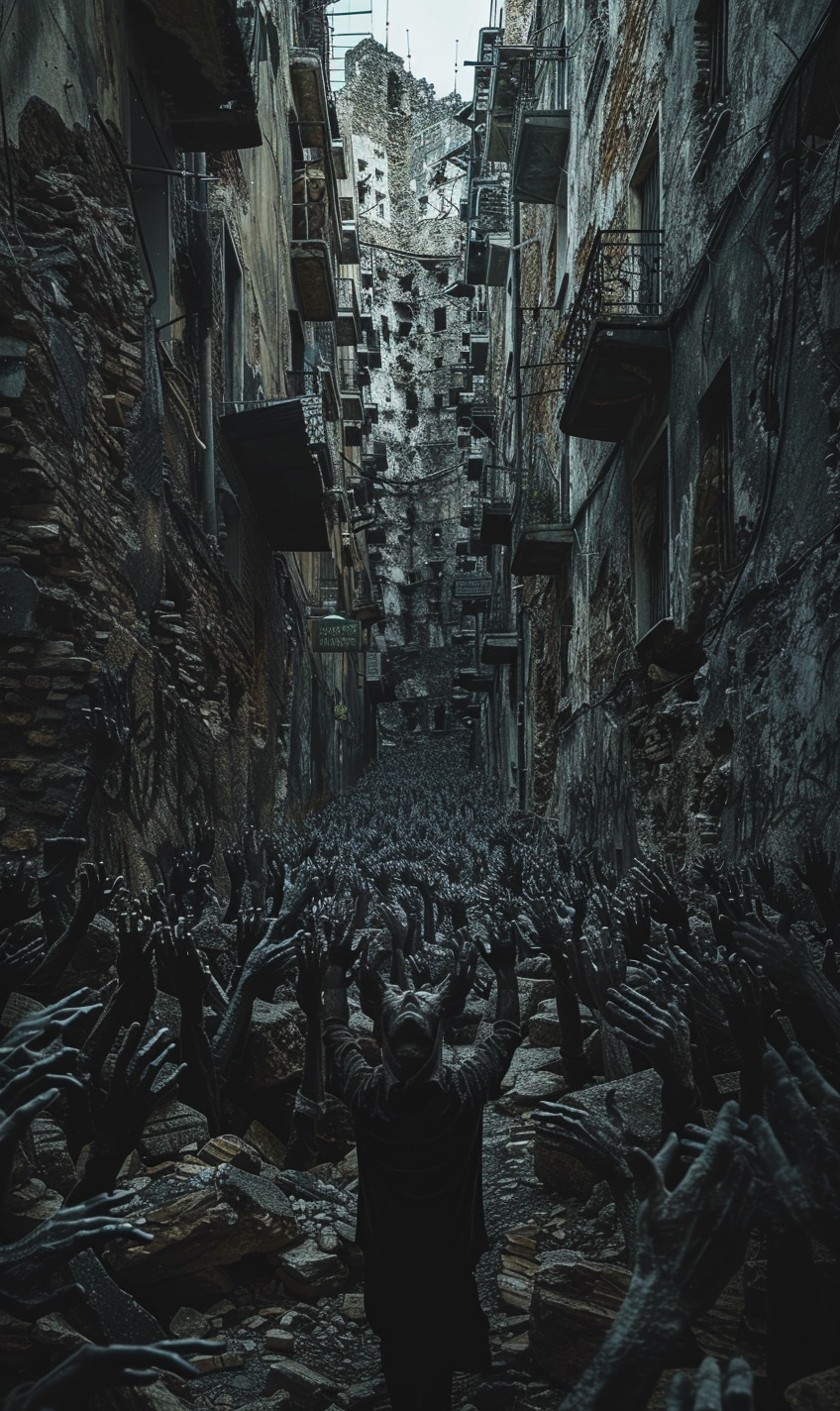

I realized then that I was no longer just a visitor. I was part of this city, one of its many hands. I had become a piece of the endless stone, my own hands forever reaching out from the walls. Here, in this place where faces were rare and eyes even rarer, I found a stark kind of unity.
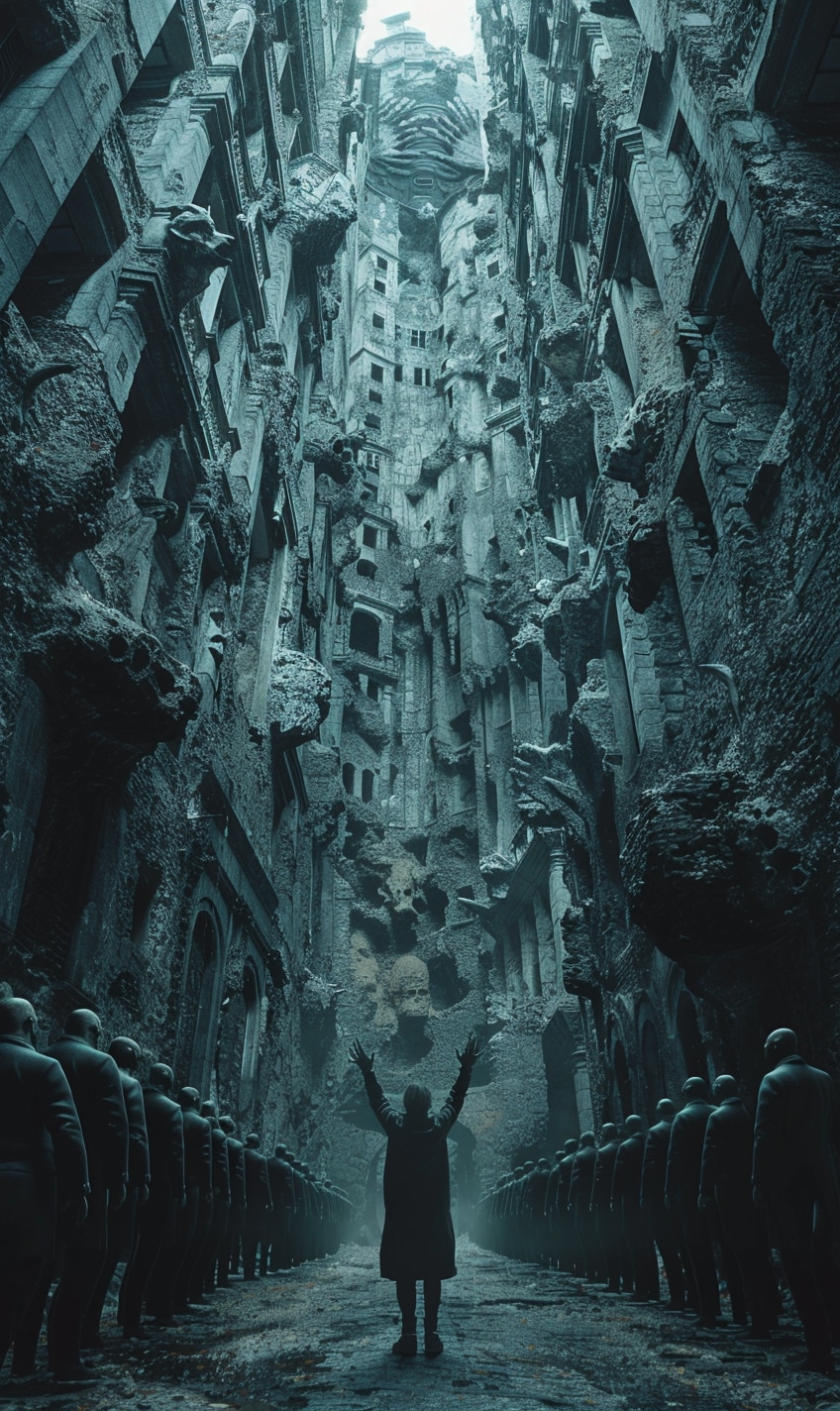
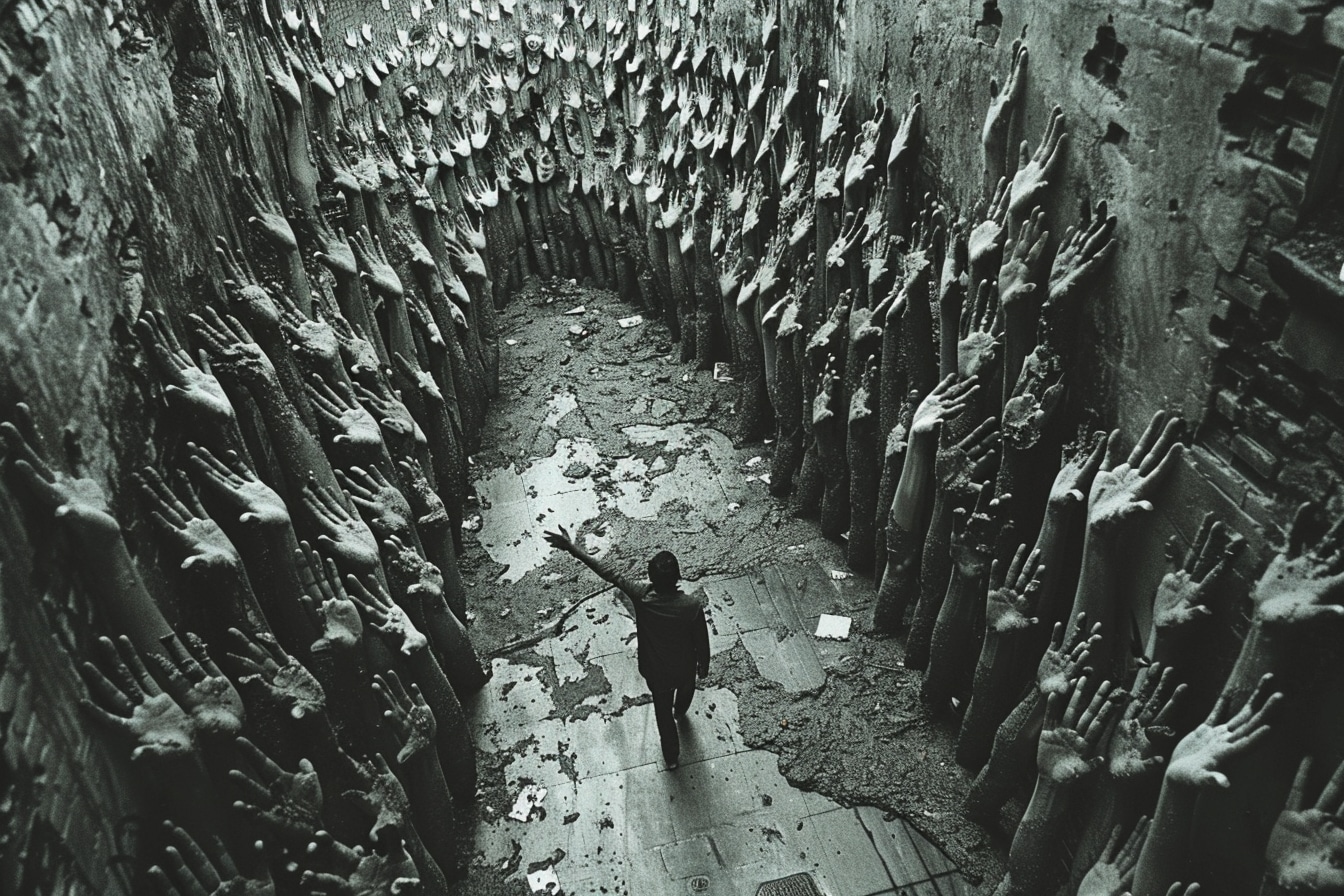
This was no longer about escape or exploration. It was about acceptance. I was the city, and the city was me. We were bound together, a mesh of stone and flesh, forever part of the same silent cry for something more. In this realization, I found a deep, unspoken peace. I wasn’t lost; I had merely found a different kind of belonging—one that would endure as long as the stone walls around me.


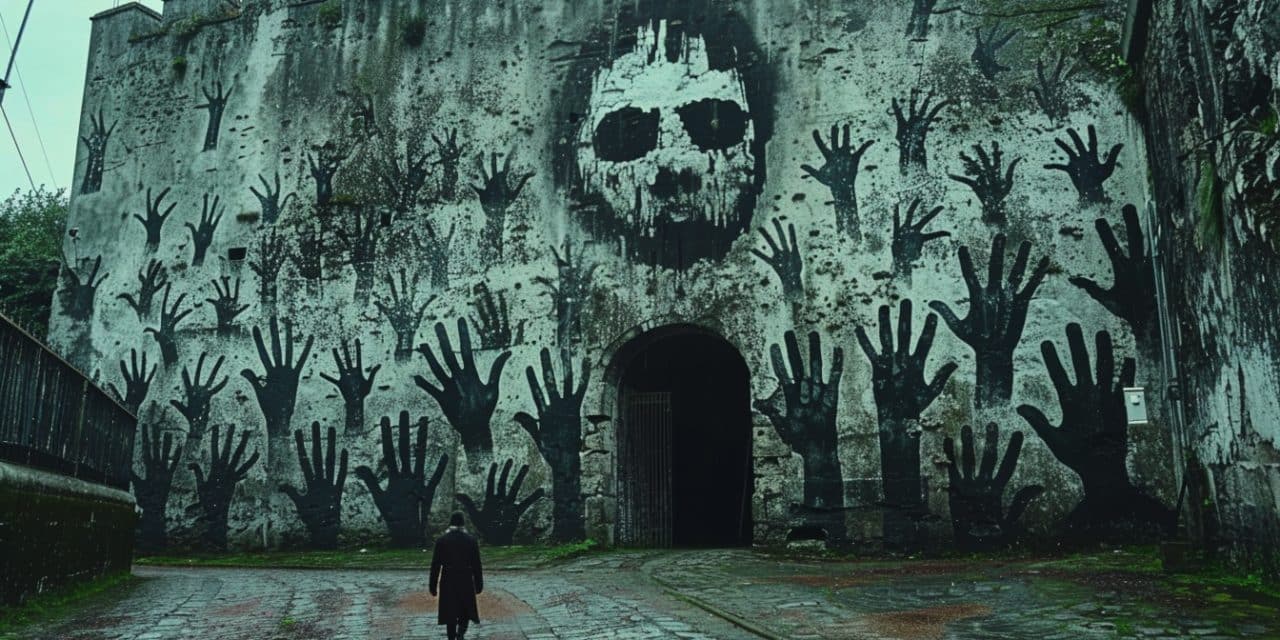

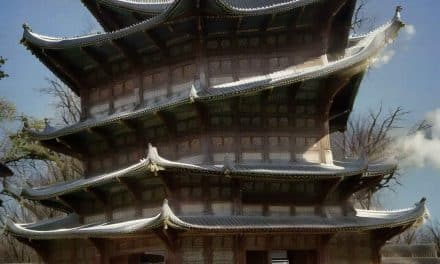
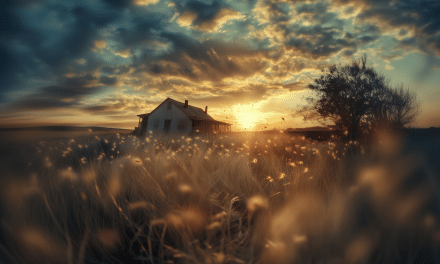




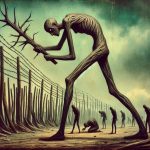




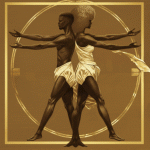







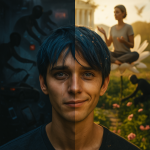








Comments